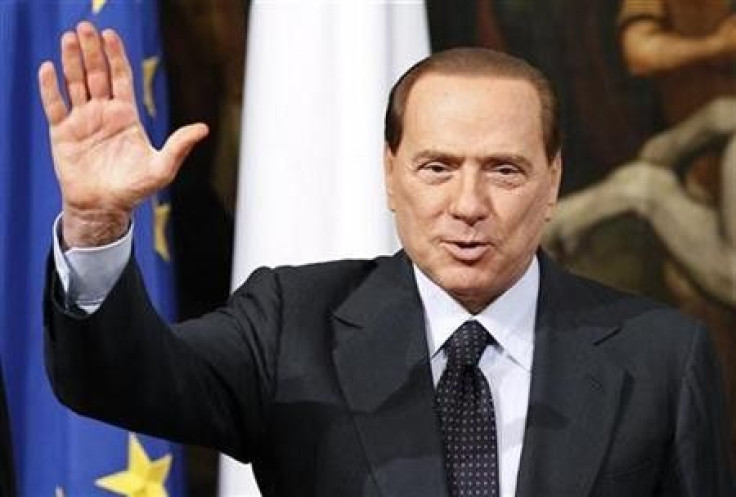Scandal damages Berlusconi but not his party-poll

The latest sex scandal surrounding Prime Minister Silvio Berlusconi has damaged his public image but support for his party has risen, meaning he would likely win an early election, a respected pollster said on Sunday.
Presenting the findings of his latest ISPO survey for Corriere della Sera daily, Renato Mannheimer said that while half of those interviewed thought Berlusconi should resign, support for his centre-right party had increased.
The poll was conducted after Milan prosecutors alleged that Berlusconi paid for sex with a significant number of prostitutes, including a 17-year old nightclub dancer.
The 74-year-old prime minister, who has survived a string of scandals over his private life since returning to power in 2008, denies any wrongdoing and says he has never paid for sex.
With Italian media full of details of the parties that prosecutors allege took place at Berlusconi's homes, Mannheimer said the scandal appeared to hurt the premier's public image, but not his party's electoral appeal.
This apparently contradictory survey shows how polarised and disoriented Italians are, Mannheimer told Reuters.
It means that even some centre-right voters who have grown critical of him because of the latest scandal, see no credible alternative in the opposition, he said.
BIG BUSINESS UNHAPPY
Forty-nine percent of respondents said Berlusconi should step down, up eight percentage points from a year ago and compared to 45 percent who thought otherwise.
But voter intentions for his People of Freedom party rose to 30.2 percent from 27.6 percent in December, cementing its rank as Italy's biggest political force and indicating that Berlusconi would likely win an early election.
Italy's electoral system gives power to the largest party or coalition regardless of whether it has an absolute majority.
Support for the PD, the biggest party in the chronically
divided centre-left opposition, was steady at 24.5 percent.
Mannheimer said centre-right voters appear largely inured to the premier's lifestyle, and the scandal did not seem to abruptly shift voting intentions.
But he said that the number of people undecided or mulling abstention was increasing, pointing to a growing sense of disarray and disconnect from politics.
The Vatican has called for higher moral standards, and on Sunday the head of business lobby Confindustria issued a stern warning to the government, saying Italy's image abroad was suffering and that early elections were preferable to political paralysis.
Over the past six months, the action of the government has been insufficient. In the next few weeks we need to see if the government can carry out reforms, otherwise other choices will have to be made -- we can't wait any longer, Emma Marcegaglia told a TV talk show.
Berlusconi accuses magistrates of waging a politically motivated campaign aimed at ousting him from power and on Saturday reiterated he had no intention of stepping down.
But the latest investigation comes at a particularly difficult time for him. He narrowly scraped through a confidence vote last month after a split with former ally Gianfranco Fini deprived him of a secure parliamentary majority.
He also lost automatic immunity from prosecution following a ruling by Italy's top court earlier this month.
© Copyright Thomson Reuters 2024. All rights reserved.











